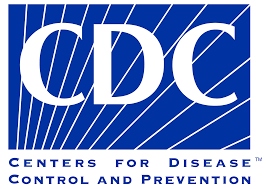CDC Recommends First Maternal RSV Vaccine to Safeguard Newborns

In a significant development, the Centers for Disease Control and Prevention (CDC) has recommended the use of the first maternal RSV vaccine during the third trimester of pregnancy as a vital measure to protect newborn infants. This groundbreaking decision comes after the CDC’s advisory committee overwhelmingly voted 11-1 in favor of endorsing the vaccine, known as Abrysvo by Pfizer. The recommendation targets pregnant individuals between 32 and 36 weeks gestation, aiming to impart protection to infants during their critical first six months of life.
The CDC’s Crucial Recommendation
The CDC’s endorsement of the maternal RSV vaccine marks a significant milestone in safeguarding the health of newborns. The agency’s director, Dr. Mandy Cohen, emphasized the importance of this new tool, stating, “This is another new tool we can use this fall and winter to help protect lives.” Dr. Cohen encourages parents to engage in discussions with their healthcare providers to explore options for safeguarding their infants against severe RSV illness.
Widespread Availability
The CDC has revealed that the maternal RSV vaccine is already available in select locations across the United States, with plans for wider distribution in the coming weeks. This availability promises increased accessibility for expectant mothers and underscores the urgency of this vaccination initiative.
Alarming RSV Statistics
RSV (Respiratory Syncytial Virus) poses a substantial threat to infants and young children, with statistics revealing its alarming impact. In the United States alone, RSV hospitalizes between 58,000 and 80,000 children under the age of 5 each year, according to the CDC. Globally, in 2016, over 650,000 children under the age of five succumbed to lower respiratory tract infections caused by RSV, as reported in The Lancet Infectious Diseases.
Vulnerable Populations
Infants under six months of age and premature newborns face the highest risk from RSV. Additionally, young children with underlying health conditions such as heart, lung, or neuromuscular diseases are particularly vulnerable to severe complications from the virus, as highlighted by the CDC.
Addressing Disparities
Dr. Michael Caldwell of Meharry Medical College emphasizes the potential impact of the maternal RSV vaccine on populations with disproportionate rates of prematurity, such as Black and American Indian/Alaskan Native communities. These groups have prematurity rates that exceed those of white infants by approximately 50% and 30%, respectively. Dr. Caldwell suggests that reducing the severity of RSV in these babies could be a significant step in addressing health disparities.
Complementary Measures
In addition to the maternal RSV vaccine, another tool has gained approval for safeguarding infants. Nirsevimab, a monoclonal antibody shot, is now recommended for all infants under 8 months old. During discussions, experts outlined clinical considerations for using these products in tandem. However, it was noted that most babies born to mothers who received the RSV vaccine during pregnancy may not require additional protection with nirsevimab, unless born within 14 days of their mother’s vaccination.
FDA Approval and Safety Monitoring
Pfizer’s Abrysvo, the maternal RSV vaccine, received FDA approval for use in pregnant individuals in August. It is essential to note that the FDA recommended administering the vaccine no earlier than 32 weeks gestation due to a lack of sufficient evidence linking it to increased premature births in clinical trials. Pfizer is obligated by the FDA to conduct post-marketing studies to continually monitor the vaccine’s safety.
Ensuring Equitable Access
Dr. Julie Morita of the Robert Wood Johnson Foundation emphasizes the importance of ensuring equitable access to the maternal RSV vaccine for all eligible pregnant individuals. While celebrating this milestone, Dr. Morita underscores the need to make this vaccine accessible to everyone.
A Historic Advancement
Described as “historic” by Dr. Caldwell, the maternal RSV vaccine represents the first-ever vaccine studied in pregnant women during clinical trials before licensure. This pioneering approach holds promise in protecting infants from vaccine-preventable diseases.
Maternal Vaccine Benefits
Dr. Laura Riley, chair of the American College of Obstetricians and Gynecologists’ (ACOG) Immunization, Infectious Disease, and Public Health Preparedness Expert Work Group, applauds the introduction of a maternal vaccine. She highlights the potential for maternally derived antibodies to cross the placenta rapidly and protect babies from vaccine-preventable diseases.
ACOG’s Support
The ACOG has expressed strong support for the maternal RSV vaccine, emphasizing its efficacy and necessity. Dr. Christopher Zahn, interim CEO of ACOG, stresses the importance of providing parents with the option to safeguard their newborns from RSV.
Expanding the Maternal Vaccine Arsenal
The maternal RSV vaccine joins a growing list of vaccines recommended during pregnancy, including COVID-19, flu, tetanus, diphtheria, and pertussis (Tdap). Dr. Riley reports that her patients have shown great enthusiasm for this new development, with many expressing a desire to receive the vaccine.
The CDC’s recommendation of the maternal RSV vaccine represents a crucial step in protecting the health and well-being of newborns. This innovative approach, combined with complementary measures, offers hope for reducing the impact of RSV, particularly in vulnerable populations. As this historic vaccine becomes more widely available, it is essential to ensure equitable access and prioritize the health of expectant mothers and their infants





